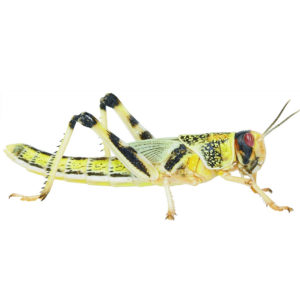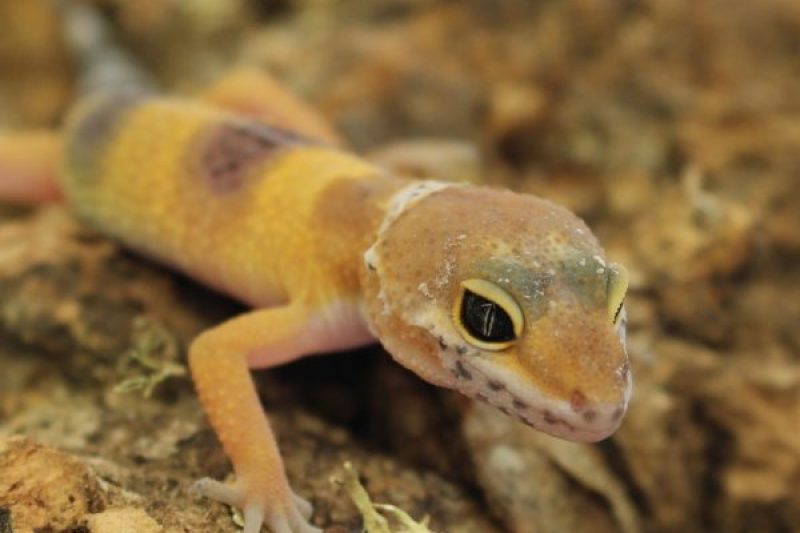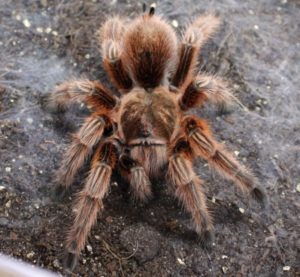
Live food Loyalty Program — Only at Our Kidlington Store!
Calling all reptile keepers and bug lovers! Stock up and earn rewards every time you purchase live foods in-store. 🦗 Get 50 Bonus Points When

Leopard geckos are mostly nocturnal, yes! Whilst leopard geckos are not out and about during the day like a bearded dragon, they do emerge at dawn and dusk as well as at night. It’s then that they absorb UV, and warm up for the day – or night! – ahead.
Leopard geckos, like most reptiles, are predominantly solitary in the wild. In captivity, two or more females will usually tolerate each other as will a male and several females. If provided with plenty of space, more hiding areas than geckos and abundant food then a stable group can be assembled. However, one gecko is perfectly happy on its own!
No, leopard geckos are not poisonous. Not at all. Neither are they venomous.
Leopard geckos are fast, they need to run fast to escape being caught by predators. Certainly as babies leos rely on speed to escape predators, so they can – and do – run away very fast given the chance. However, as they age and get used to being handled they get calmer, and are less inclined to run away.
Any animal that has a mouth can bite. Leopard geckos are gentle, easy going lizards that will only bite you if they are frightened or hurt – or you are hand feeding them a particularly tasty morsel!
They certainly do need a heat source to provide a hot spot in their vivarium, but it doesn’t have to be a lamp. Heat mats are a good source of gentle heat, but do avoid hot rocks.
Yes they do. Read our blog on the subject.
Yes. They don’t have the different types of teeth that mammals do – canines, molars and so on – but they do have sharp little teeth to grip their food with.
Yes, absolutely! They are simple to house and light, they do not need as big a vivarium as some of the larger lizards, and are gentle and personable. They don’t eat much, and are robustly healthy as long as their needs (temperature, UVB access, and supplementation) are met.
Just before they shed, leopard geckos loosen the old skin by pumping a small amount of fluid between the layers of old and new skin. This makes the old skin look rather dusty and grey, and is a good indicator that your gecko is about to shed.
This partly depends on the sex of the animal. If females are digging, then they may be gravid (about to lay eggs), and are looking for somewhere to deposit them. Males may be exploring, or trying to escape from excessive heat – check your temperatures.
There are several reasons for this. First, reptiles don’t understand that you can’t walk through glass, so they may simply be trying to investigate part of the room outside their house. They may be just exploring, or they might be trying to get away from something that is making them unhappy – a bullying cage mate or excessive heat are two common ones. Check all your parameters, and consider separating co-habiting geckos.
We are a diurnal – day active – species, and leopard geckos are nocturnal – night active (although they are also active at dawn and dusk as well) – so our active times don’t always coincide. If you haven’t seen your gecko for some days, however, check that it really is sleeping, and not hiding because it is unwell or excessively stressed.
Post your question below in the comments section or pop into our reptile shop located in Kidlington, Oxford!

Calling all reptile keepers and bug lovers! Stock up and earn rewards every time you purchase live foods in-store. 🦗 Get 50 Bonus Points When

Welcome to Evolution Reptiles’ guide to tarantula care! Whether you’re a seasoned arachnid enthusiast or just starting your journey into the fascinating world of these

Why Do UVB Lamps for Reptiles Need to Be Replaced and How Often UVB lamps are essential for the health and well-being of reptiles, but
Copyright 2021 Evolution Reptiles
All rights reserved.